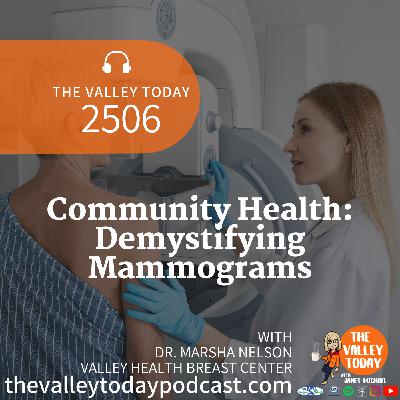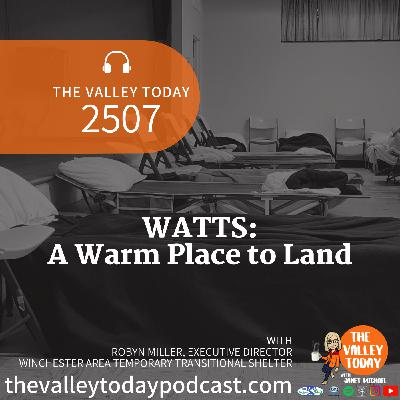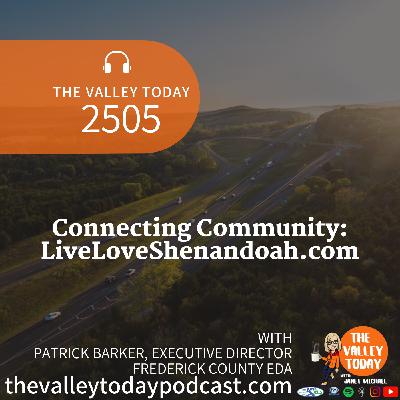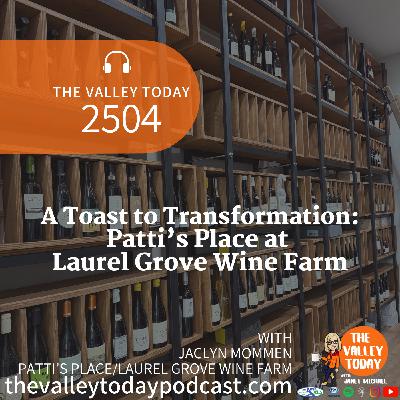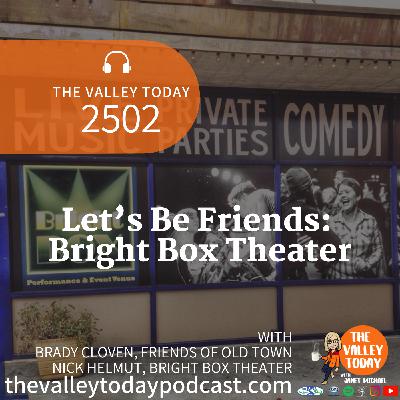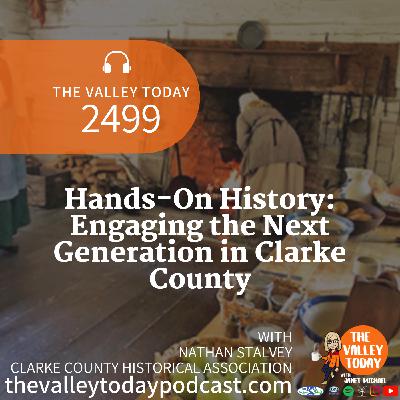Community Health: Demystifying Mammograms
Description
In a candid and informative episode of "The Valley Today," host Janet Michael talks with Dr. Marsha Nelson, a board-certified breast surgeon at Valley Health Breast Center, to shed light on the realities of breast cancer. As October marks Breast Cancer Awareness Month, the timing of this conversation could not be more relevant. From the outset, Janet sets a personal tone, sharing her own hesitations about mammograms and giving a heartfelt shoutout to a friend and survivor, Sandy Schwab. This openness paves the way for a discussion that is both educational and deeply human.
Understanding the Risks
Dr. Nelson wastes no time addressing the statistics: breast cancer is the most common cancer among women, with one in eight women facing a diagnosis in their lifetime. However, she quickly clarifies that while the risk is significant, it is not the leading cause of cancer-related deaths among women. The conversation transitions smoothly into a discussion of risk factors, emphasizing that age and gender are the two biggest contributors—factors no one can change. Nevertheless, Dr. Nelson highlights the importance of understanding family history, genetics, and lifestyle choices such as smoking and diet. She notes that only a small percentage of breast cancer cases are directly linked to genetic mutations, but encourages women to be proactive about their health regardless of their background.
The Power of Early Detection
Transitioning to the topic of screening, Janet and Dr. Nelson explore the life-saving potential of early detection. Dr. Nelson strongly advocates for annual mammograms starting at age 40, explaining that early-stage breast cancer is highly treatable and often curable. She addresses common concerns about mammograms, from discomfort to fears about radiation, and reassures listeners that the benefits far outweigh the risks. Moreover, Dr. Nelson discusses the limitations of mammograms, especially for women with dense breast tissue, and explains how additional imaging techniques like ultrasounds and MRIs can provide a clearer picture when needed.
Navigating the Emotional Journey
The conversation takes a personal turn as Janet admits she has never had a mammogram, despite regularly interviewing health professionals. Dr. Nelson responds with empathy, acknowledging that fear and uncertainty often prevent women from scheduling screenings. She emphasizes that knowledge is power, and that early detection can spare women from more aggressive treatments down the road. The dialogue underscores the emotional complexity of breast cancer prevention, blending medical facts with real-life anxieties and encouragement.
Genetics, Testing, and Next Steps
As the discussion delves into genetic testing, Dr. Nelson outlines the process for women who may be at higher risk due to family history. She explains that not everyone needs genetic testing, but those who meet certain criteria can benefit from counseling and, if necessary, more intensive surveillance. Importantly, Dr. Nelson dispels the myth that a positive genetic test automatically leads to drastic measures like prophylactic mastectomy, stressing that each case is unique and should be managed with personalized care.
A Call to Action
In closing, Janet commits to scheduling her first mammogram and urges listeners to do the same. She invites her audience to share their own screening dates, fostering a sense of community and accountability. Dr. Nelson expresses her hope that the conversation will inspire more women to take charge of their breast health, reinforcing the message that early action saves lives.

